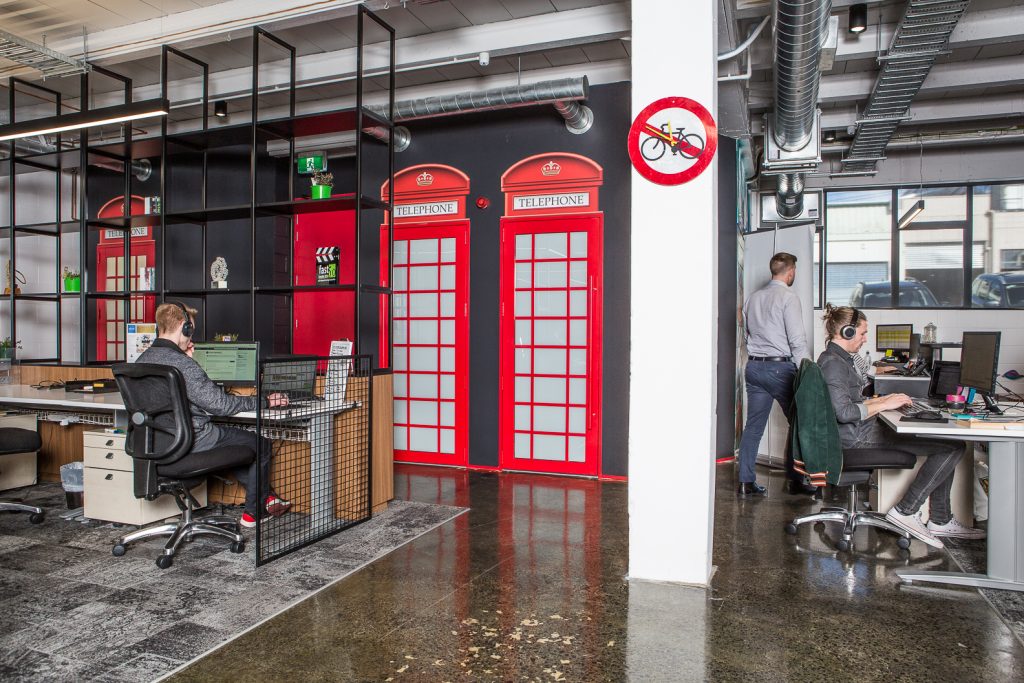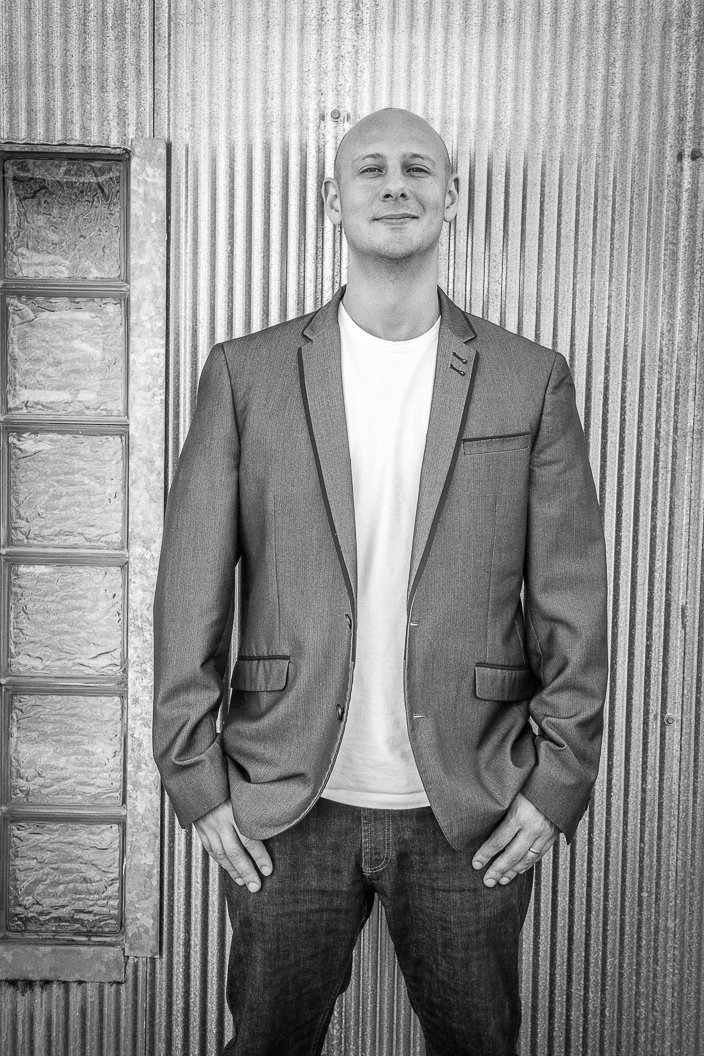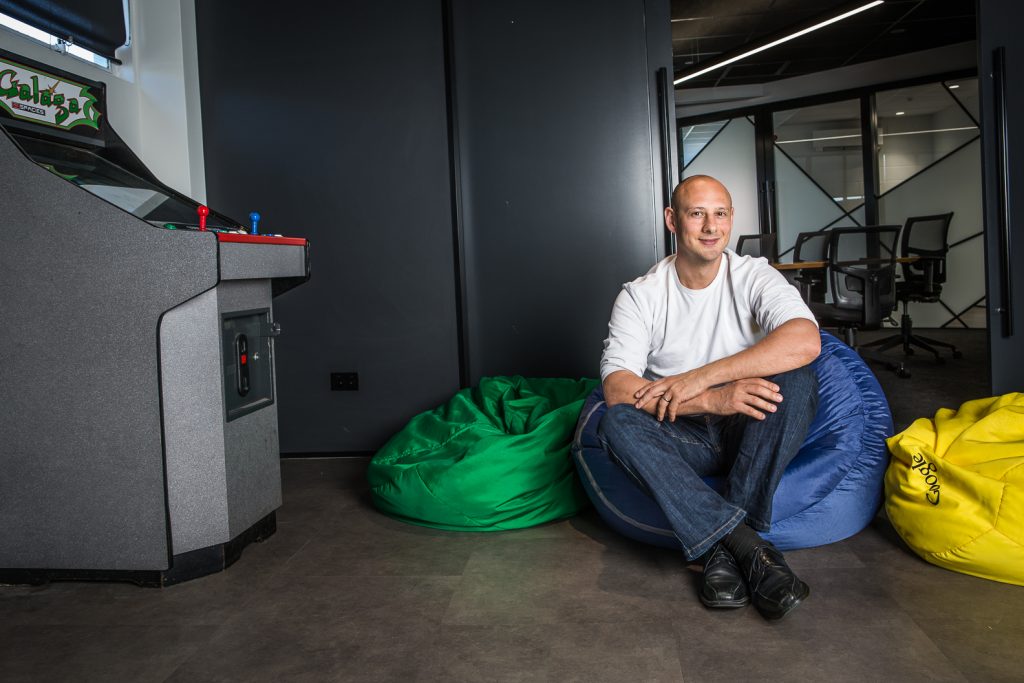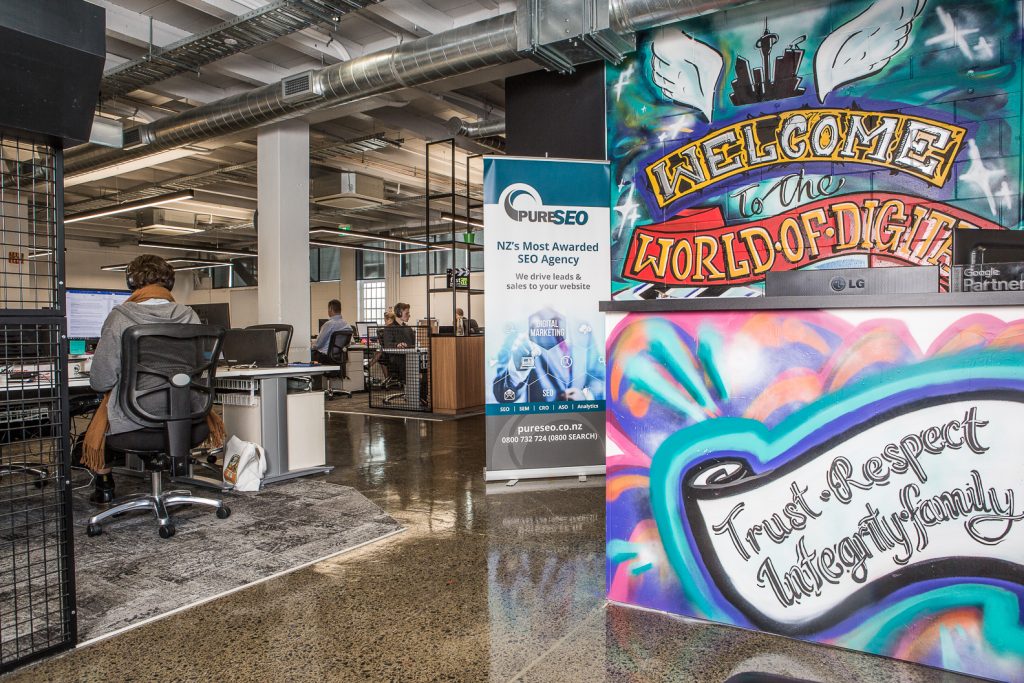Richard Conway on How to Grow Your Business From Nothing
Recognised as New Zealand’s most awarded SEO agency and ranked as one of the fastest growing businesses in New Zealand twice in a row, in 2014 and 2015, Pure SEO has come a long way since its birth in 2009, when founder Richard Conway saw a gap in the market for quality SEO. From a shared office space in Auckland with a few staff, Pure SEO now is in Wellington, Melbourne, Manilla and a brand new Silicon Valley-style premises in Auckland.
We talked to Richard about the personality of leaders, his journey and the future of Pure SEO.
What’s your morning routine?
Depends on a week day; usually up nice and early with the kids, getting them ready for school and then get in the office. Generally, I ignore my emails for a little bit and just think about what I need to do for the day. My general morning goal is to get the most painful things done first.
So I get the big s**t done first, because otherwise those things are always on my mind and so I try in the morning to think what they are and get them done first. Once I’ve got them done, the day is much easier.
What are the most annoying things that you have to get out of the way first?
Oh, doing many things like putting together a proposal which needs to be done, or writing an article, or the big things that I’ve got to think about and take some time to do. Whereas the other things are generally around meetings or sorting out cool stuff, like organising or going to events or things like that. I enjoy trouble shooting, like in sitting down in front of the computer, get the admin-type of things done first.
Take us back to the birth of Pure SEO.
In 2009, nobody really wanted to give me a job in New Zealand, so I thought I would make one myself. My wife and I are British and we didn’t know anyone in this country so it was really a matter of getting out and meeting people. I remember getting up at 11 o’clock in my dressing gown thinking ‘S**t, where am I going to get business from?’ We’ve got rent to pay and my wife was a social worker, so she was working and I was working unemployed/ self-employed and I had no idea what I was doing, truth be told.
So I had one bank account for my business and my personal together and didn’t do anything the right way to start with. I am not a natural extrovert, I am a natural introvert and so I had to kind of get over that and get out and meet people. I remember going to events and not knowing anybody in the room and then trying to find other people who were clearly also uncomfortable in that environment; just going up and chatting up to them made it a little bit easier.
It’s become easier over the years, but the beginning was really hard because there’s more to it than just sort of meeting people, I had to actually do the work. I had to do the business side of things and the strategy. I had to do everything during the whole first year in a country where I really didn’t know anyone.

So was there an opportunity that you saw at the time? did you think that there was room in the space for you to make an impact?
Yeah, well I looked at several different things I could have done. I was thinking about getting into property, because I’ve got a background in commercial property, and into management as well. I had a good understanding and I’ve been involved in the [SEO] industry a little bit, but I saw how they were going here and it was some way behind what was going on in the UK. So I thought there’s probably an opportunity for an ethical SEO agency. The big thing which I noticed when I came to this country is a lot of people don’t phone you back and don’t do what they say they are going to do.
I kind of figured ‘Look, do this, specialise at this, go above and beyond, and always phone people back. Always do what you say you are going to do and there could be an opportunity’. I didn’t really believe that it would grow as big as it has. I remember I was part of that EO [Entrepreneurs’ Organisation] admission entrance after a few years and someone was turning over $60,000 a month, I couldn’t believe how much that was. It’s all these little stages.
What would you put your success down to?
Obviously timing is important; there’s a bit of timing, there’s a bit of luck. There’s the fact that I naturally want to delegate, I don’t want to have my hands on everything and that’s allowed the business to grow because I found really good people who can do stuff.
Sticking to the niche. I could very easily over the years gone into websites, got into social media, got into graphic design, but I think that would have comprised our offering. We are Pure SEO and we are known for SEO, AdWords, and some analytics.
I have been lucky to have some really good people around me. I sold part of the business in 2014 so I’ve had some really experienced business people to help me grow the business and that’s obviously had a positive impact.
Also, getting outside the comfort zone and not being afraid to lift the head above parapet and market myself. I often meet people and, because I write for M2, it’s always interesting that the perception is very different to the reality.
In the beginning of 2011, I spent $10,000 on a new website, which to me was fortune. My first enquiry through that website was Singapore Airlines and it made me realise the importance of the presentation and the way it looks to the outside. You can kind of be whoever you want to be and you can pitch yourself however you want to pitch yourself, as long as you back it up when it comes down to it.
What is it about our culture here or our society, even back then, where there would be a whole lot of people with potential business, but just didn’t make the phone calls back?
I don’t understand it. We built a house recently and a lot people that said they would turn up, didn’t turn up, and I just think it’s not that difficult to do what you say you are going to do. So I don’t know what it is. Maybe business is quite easy in New Zealand, maybe people have enough and don’t feel they need to get back, especially tradies and things like that. But in our experience, a number of times we have reached out to people and they haven’t even bothered returning our calls.
We are wanting to spend our money with them, it seems absurd. So I’ve tried to put the opposite philosophy into the business and treat everyone the way in which I want to be treated myself because then you can’t really go wrong.

I guess as you have been along this journey, you are continuously growing and you’ve got a different relationship with the organisation and the people. Has that been a hard thing to try and remove yourself from the operation side of things?
It’s hard in the culture changes you grow. You don’t know all your clients anymore, you don’t have the same relationship with people, they haven’t got the same mission as you. Plus, I’ve got an office in Manilla, I’ve got an office in Melbourne and Wellington. So everything is different when you start to become a proper organisation, rather than 7 or 8 people on a mission to change digital marketing in New Zealand.
You are seen as the incumbent to a large extent, whereas we were the challenger for many years and that’s quite a difficult thing, because I still see this as the challenger but the market perceives us as the incumbent, as the big player.
I think moving here to a new office is a positive because it’s a bit more in brand with the kind of thing we want to do. We launched another company 2 ½ weeks ago which is a corporate brand with digital popcorn and that’s because we don’t really do corporate businesses, but I put in a CEO for that.
Always doing different things and always trying to grow and do things differently to everybody else. One thing that people don’t know yet is I’ve just had sign-off from people at Random House to write a book based on SEO for Australia and New Zealand, so that’s good for the brand. It’s good for marketing, it’s like a business card, isn’t it? Being published by someone else gives it a bit of ratification and validity. So that will be exciting. That’s probably finished by the end of September and probably published April next year.
It’s interesting that you bought this place up because I was thinking as you were talking about the website where you spent $10,000 and, as you say, you can be anything and you can be that face. I guess this office starts to become a physical representation of that as well?
Absolutely, we bought this and we spent $1.2 million doing it up, so the fit-out cost a f***ing fortune, but ultimately we’re now paying our own mortgage with the rent so it is another evolution in the growth of the business. We’ve actually got a home which we own and have the ability to expand into it, that’s why we spent a lot on the fit-out because I wanted it to be comfortable, I wanted it to reflect the brand.
Is there not the finance part of your brain that is freaking out when it does the numbers on a $1.2 million dollar fit-out. You could come in here and put the desks in and everyone could function. How do you quantify that investment in terms of what it will bring back to you?
So there’s two sides; one, the building was a wreck and it hadn’t been touched for probably 20, 30 years. So a lot of that investment is bringing the building up to scratch and ultimately the money we put in adds value to the building. But the banks’ paying for it, our cash flow is paying that back.

So I think it will be a good investment. We are in Northcote but we are 5 minutes to the Central City so I think things are undervalued. Here we’ve got 900m2 plus another 100m2 flat, so it’s a big chunk. So I think in the long run, as long as we are here for 5 to 10 years, it will double in value, so it will probably be a good investment, but yeah, at the moment it’s painful. I certainly won’t be getting any dividends for at least a year.
Have you noticed any changes in terms of productivity, culture?
Everyone loves it. Something that’s been really nice is quite a few of the staff have actually moved to the North Shore, which shows that they value working here and value the brand. So that’s been really cool.
Are you finding things changing in terms of attracting the best staff? Are you having to work harder?
It’s a funny one, because at points when you go out, there is no one available and then there seems to be a glut. So at the moment I would say we’ve got the best people we’ve ever had, but we do work hard on our culture. Every Monday, I take the team kickboxing. So today at 5pm, about 10 or 15 of us will be at the gym kickboxing. We also intend to, because kickboxing is not for everyone, to bring in someone to do yoga in here so that the other people get to do some stuff.
I am very much into health and wellness and we do lots of team building things. So every January or February, we take everybody out on a yacht. Last time we’d grown too big to have one yacht so we had two yachts. We park them up and did a gang plank between the two of them.
The thing that I don’t agree on, which a lot of people are saying at the moment, is people should be able to work from home. I love the fact that I can sit with everybody else and it’s a space where you can just chat to people and you can throw ideas about. We’ve got the quiet rooms, we’ve got the phone booths down there and things like that if you need peace and quiet. But I think better stuff comes from collaboration. A lot of people think better stuff comes from remote working, but I don’t subscribe to that personally.
A lot of people will say that that’s the future though
But we are losing more and more human contact with social media and things like that and I think interpersonal relationships are valuable. Plus, I think skill sets of the future are things like EQ [Emotional Intelligence] and having that ability to communicate with people. There will be a lot of machines doing a lot of the technical and the rote tasks and so having the ability to actually engage with people, talk to people, I think is going to become more valuable.
And just on EQ for a minute, you spoke before about being more introverted. I find that fascinating within the context of the entrepreneurial world because it seems a celebration of extroverts and being able to really sell yourself and pitch things. But it seems to overlook the potential of the quieter side of things and the people who have the ideas, but don’t necessarily sell them the best way.
Yeah, well it’s an effort. You learn and there’s all sorts of personalities and you learn how to deal with these personalities. There’s the high D personality, who they feel something, they believe it must be fact, as they go headlong and sometimes those people can be the worst people to work with. But if those people are really smart, they can sometimes be the best, the most successful people, because they don’t care what anyone says, they go headlong into something regardless of what anyone says. Or, if they don’t have the intelligence or the ideas, they just go headlong into stupid things.
Then you’ve got people who are extroverts, who just come through and chat with everyone, and you get a lot of entrepreneurs that are like that. Then you get people, like myself, who are naturally introverted but force themselves to do other things. I am alright when it comes to one on one, but groups and getting up and speaking at events is tough. But I still do it because you’ve got to do these things. If you’re not, it’s like everything in business and in life, if you are not pushing on your boundaries, you are not really going anywhere. You are going backwards.

Have you had to force yourself to change?
Absolutely. I remember when I started the business and had first couple of employees, I was too embarrassed to ask anyone to make me a cup of tea. So you learn, just as you go along, things become easier. But I don’t see myself as a natural leader. I can see myself as someone who kind of plays at being a leader and learns to be a leader. And if I wasn’t in business, I would be very much peripheral. I wouldn’t want to be front and centre; I made the decision to become front and centre.
I think it’s a little bit sad as well, because if someone is more of an observer and a listener than a talker, I don’t think that makes them any less of a leader. There’s probably stuff that they bring to the table that an extrovert is missing. Do you think that there should be so much of the push for people to change themselves and we would be playing up our strengths?
I think we should, but in the real world I don’t think it works like that because any business has to sell and they have to market themselves. And to be able to sell, you’ve got to be able to front up and talk about your proposition in an eloquent manner and be able to engage with people. So you need that whole sales and marketing thing and I think that requires a certain amount of personal connection, but I think introverts can do that.
They just might not be as natural to them as an extrovert. But then I find often introverts can get deeper relationships quicker, whereas extroverts can get a lot of superficial relationships really quickly, to be known by everyone. But I do the media thing, so the M2 Coach columns and things like that. That gets me exposure and people recognise me without me having to deal with the stuff, so it kind of breaks the ice a little bit as well and gives a bit of credibility.
Apart from doing M2 Coach Columns, what other advice do you have for introverts to get themselves out there? Even if they arrive at a function and there is potential networking there.
If you are not comfortable just chatting to people, find a person on their own and they will be delighted for you to come up and speak to them, because they are probably feeling the same as you. If you think of things beforehand that might be of interest to people and might be conversation starters. Just be prepared to get outside your comfort zone, because good stuff happens when you get outside your comfort zone.

